Workshops+ 查看更多
Workshops
+ 查看更多
Workshop 1: Machine Learning (ML) Based Decision Support System
Workshop 1: Machine Learning (ML) Based Decision Support System
In an era characterized by an abundance of data and complex decision-making scenarios, the integration of Machine Learning (ML) into Decision Support Systems (DSS) has emerged as a transformative solution. These advanced systems leverage sophisticated algorithms to analyze data, recognize patterns, and provide valuable insights, aiding decision-makers in making informed and strategic choices.
Keywords:
- Decision Support System
- Neural Network
- Decision Tree
Chair:
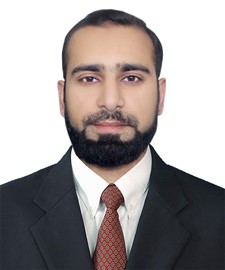
Dr. Sohaib Latif
The University of Chenab, Pakistan
Dr. Sohaib Latif is Assistant Professor in the Department of Computer Science, at The University of Chenab (UChenab), Gujrat, Pakistan. Before joining UChenab, he served as a Research Associate at the School of Mathematics and Big Data at Anhui University of Science and Technology, Huainan, Anhui, China from October 2019 to June 2023.
Workshop 2: Cyber Security and Block Chain Technique
Workshop 2: Cyber Security and Block Chain Technique
Since the development of Cloud Computing technology has deeply changed not only the development of computer science, but also influenced the way people live. With Cloud-based technology, various kinds of mobile applications to big data based services are provided to accelerate the data oriented services. Today, one of the most promising trends is the Cloud-based service such as block chain technique for enterprises to deploy their business on Cloud servers. However, privacy and security issues along with the widely developed Cloud-based services are always becoming an obstacle for the usage of the Cloud services. Also, the Artificial Intelligence (AI) based technologies such as Deep Learning (DL) have brought new challenges to the traditional security and privacy issues on Cloud Computing. The workshop focuses on these two aspects and aims to gather recent achievements in cyber security and block chain fields. This workshop invites those papers that concentrate on new paradigms, algorithms, and applications in cyber security or block chain. We also encourage researchers and practitioners to build up the connections between academia and industry. We aim to collect the latest achievements and exchange research ideas in the domains of cloud-based service and security at this academic event.
Topics of particular interest include, but are not limited to:
- Security of Artificial Intelligence enabled computing
- Security and Privacy on Clouds with AI
- Block Chain based technique
- Big data security issues
- Security and fault tolerance for embedded or ubiquitous systems
- Security of Web-based applications and services
- Cloud users’ privacy information protection
- Cyber issues and solutions in fog/edge computing
- Reinforcement learning-based security mechanism
- Secure methods for heterogeneous cloud resource sharing
- New attack methods and applications
- Trust management in cloud/fog/edge computing
- Trust and reputation systems for cloud-based applications
- Emerging attack methods in cloud/fog/edge computing
- Digital forensics and privacy issues in cloud computing
- Anti-Forensics and Anti-Anti-Forensics Techniques
- Cyber monitoring approaches
- Data leakage, data protection and database forensics
- Identity management and fraud management
- Critical issues and solutions of Cyber security in tele-health
- Cyber security in mobile embedded systems
- New security cloud computing model, framework, and application
Chair:
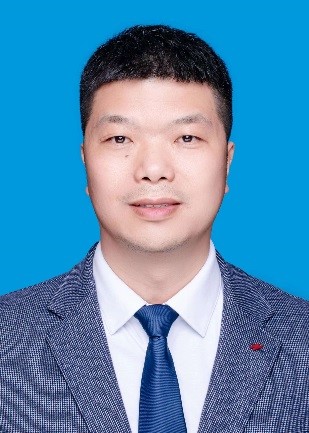
Prof. Wei Liang
Hunan University of Science and Technology, China
Professor Liang Wei, Dean and Doctoral Supervisor at the College of Computer Science and Engineering, Hunan University of Science and Technology, focuses his research on privacy preservation and blockchain. He has published over 200 publications in international journals and conferences, including ACM SIGMOD 2024, IEEE INFOCOM 2023, IEEE Transactions on Information Forensics and Security (TIFS), IEEE Transactions on Computers (TC), IEEE Transactions on Services Computing (TSC), the Chinese Journal of Computers, and the Journal of Software. More than 60 papers as the first author or corresponding author have been published in SCI Q1, CCF A, IEEE/ACM Transactions. Among these, 18 papers have been recognized in the top 1% globally by ESI, including 3 within the top 0.1‰ of ESI hot papers, and have earned 8 awards for best papers at international conferences. Professor Liang has amassed over 12,000 citations on Google Scholar, with an h-index of 55.
Workshop 3: Deep Learning for Medical Signal and Image Processing
Workshop 3: Deep Learning for Medical Signal and Image Processing
In the rapidly evolving landscape of healthcare technology, the fusion of deep learning with medical signal and image processing has emerged as a transformative force. Deep learning methodologies offer unprecedented capabilities in analyzing complex medical data, presenting new avenues for enhancing diagnostic accuracy, treatment efficacy, and patient care. With this in mind, we propose a special issue, dedicated to showcasing recent advancements, methodologies, and applications of deep learning in medical signal and image processing. This special issue aims to cover a broad spectrum of topics relevant to the intersection of deep learning and medical signal and image processing. We welcome submissions that explore neural network architectures tailored for medical applications, delve into the practical implementations of convolutional and recurrent neural networks in medical data analysis, investigate novel approaches for image segmentation and classification using deep learning, and address challenges such as signal denoising, feature extraction, and anomaly detection in medical data. Moreover, we encourage contributions that highlight the clinical implications of deep learning, including its role in disease diagnosis, prognosis prediction, and treatment planning. Ethical considerations surrounding the deployment of deep learning models in medical settings are also of interest, as are discussions on the integration of deep learning into existing healthcare workflows to streamline processes and improve patient outcomes. This special issue is aimed at researchers, practitioners, and academics across various disciplines, including biomedical engineering, medical imaging, computer science, and healthcare informatics. We envision it as a platform for sharing insights, fostering collaboration, and driving innovation in the field of healthcare technology. By bringing together diverse perspectives and expertise, we aim to advance our collective understanding of deep learning's role in shaping the future of medical signal and image processing.
Keywords:
- Deep Learning;
- Medical Signal Processing;
- Biomedical Engineering;
- Diagnostic Imaging;
- Computer-Aided Diagnosis;
- Healthcare Technology;
- Clinical Applications;
- Healthcare Informatics;
- Healthcare Workflows;
- Data-driven Medicine.
Chairs:

Prof. Muhammad Aamir
Huanggang Normal University, China
Muhammad Aamir is an Associate Professor in the Department of Computer Science at Huanggang Normal University, China. He has several years of research experience and has been widely published. His research spans multiple areas, including pattern recognition, computer vision, image processing, deep learning, fractional calculus, and organization behavior.
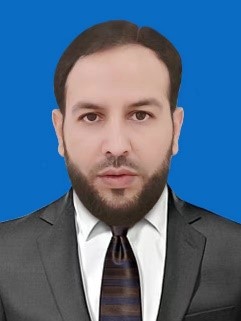
Prof. Ziaur Rahman
Huanggang Normal University, China
Ziaur Rahman obtained the Ph.D. degree from Sichuan University, China, in 2020. Currently, he is working as an Associate Professor at the Department of Computer Science, Huanggang Normal University, China. His research interests include image processing, computer vision, deep learning, and fractional calculus.

Prof. Zhonglin He
Huanggang Normal University, China
Zhonglin He received Bachelor degree from Huazhong University of Science and Technology in 2003, and received Master degree from Wuhan University of Technology in 2006. He is a Professor at Huanggang Normal University and his research interests include big data, IoT, AI, computer networks, etc.
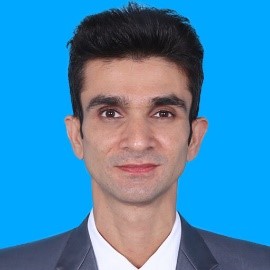
Prof. Jameel Ahmed Bhutto
Huanggang Normal University, China
Jameel Ahmed Bhutto has completed his PhD degree from South China University of Technology, China. He is working as an associate professor at the Department of Computer Science, Huanggang Normal University, China. His major research interests include pattern recognition, deep learning, computer vision, image fusion, image enhancement and digital image processing.
Workshop 4: Smart Cities and Digital Twins: Integrating Digital Innovations for Urban Intelligence
Workshop 4: Smart Cities and Digital Twins: Integrating Digital Innovations for Urban Intelligence
In the era of urbanization and technological advancements, integrating Smart Cities and Digital Twins has emerged as a transformative approach to enhancing urban intelligence. This proposed workshop explores the synergies between Smart Cities (SC) and digital Twins (DT), showcasing innovations, applications, and challenges in creating intelligent, connected urban environments. We look forward to the opportunity to curate this workshop and welcome high-quality submissions from the global research community.
The primary objectives of this workshop are:
-To present the latest research and innovations in DT & SC.
-To explore the integration and mutual benefits of DT & SC technologies.
-To provide insights into practical applications and case studies in real-world urban environments.
-To foster interdisciplinary discussions among researchers, practitioners, and policymakers in SC & DT.
Keywords:
- Digital Twin Technologies.
- Advances in creating and managing Digital Twins for urban infrastructure and systems.
- Integration of real-time data, IoT, and sensors in developing accurate and dynamic Digital Twins.
- Applications of Digital Twins in urban planning, management, and decision-making Smart City Innovations.
- Integration of smart technologies in urban environments.
Chairs:

Prof. Tariq Hussain
Zhejiang Gongshang University, China
Tariq Hussain (uom.tariq@gmail.com) is a doctoral at the School of Computer Science and Technology, Zhejiang Gongshang University, Hangzhou, China. He has over 35 research publications, two scientific book Chapters, and a technical review committee of several international journals. He also serves as a Review editor for Frontier in Big Data-Data Science and Drone Technology Journals. His research interests are the Internet of Things, Big Data, Data Analytics, 3D Point Cloud and AI.
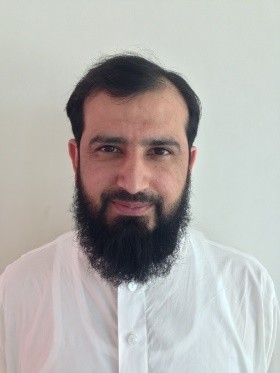
Prof. Haseeb Ur Rahaman
University of Malakand Pakistan, Pakistan
Haseeb Ur Rahman received the Ph.D. degree from Liverpool John Moores University, U.K., in 2013. In his Ph.D. work, a social P2P network was developed for sharing digital memories in an M4L system. He is working as an Assistant Professor at the Computer Science and I.T. Department, University of Malakand, Pakistan. His research interests include P2P and social P2P networks, MANETs, cloud computing, sensor networks, and the IoT. Currently, he is actively involved in research in the IoT smart farming, the Internet of Cultural Things, and social IoT. He is a TPC Member of various conferences, such as IEEE and CCNC.
Workshop 5: The Fusion of AI and Emerging Technologies: Navigating Challenges and Embracing Opportunities
Workshop 5: The Fusion of AI and Emerging Technologies: Navigating Challenges and Embracing Opportunities
In recent years, the integration of Artificial Intelligence (AI) with various emerging technologies has led to transformative developments across multiple domains. This workshop aims to explore the intersection of AI with Intelligent Information Science, Communication, and Computing, focusing on cutting-edge research, practical applications, and the implications for society. Through interactive sessions and discussions, participants will delve into the challenges and opportunities presented by this convergence, with a focus on fostering collaboration and innovation.
Topics Covered:
Intelligent Information Science and Technology:
- Information retrieval advancements leveraging AI techniques.
- Semantic Web and its applications in intelligent systems.
- Innovations in information systems for manufacturing.
- Enhancing human-agent interaction through AI.
Artificial Intelligence and Smart Systems:
- Embedded knowledge systems and their role in intelligent applications.
- Computer vision advancements powered by AI algorithms.
- Applications of machine learning in complex systems.
- Intelligent virtual reality technologies reshaping user experiences.
Cloud Computing and Big Data:
- Evolution of cloud computing architectures with AI integration.
- Big data analytics techniques leveraging cloud infrastructure.
- Tools and systems for efficient management of big data in the cloud.
Smart Computing and Communication Technology:
- Smart grid technologies driven by high-performance computing.
- Intelligent communication systems for smart cities.
- Green computing initiatives in smart power systems.
- Harnessing blockchain and IoT for secure communication.
AI Security:
- Understanding adversarial attacks and defenses in AI systems.
- Ensuring privacy protection and fairness in AI applications.
- Exploring AI-enabled cybersecurity measures.
- Addressing the social implications and regulatory aspects of AI security.
Chairs:
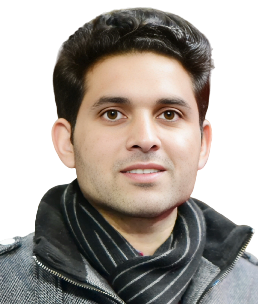
Prof. Muhammad Shahid Anwar
Gachon University, South Korea
Muhammad Shahid Anwar is currently working as an Assistant Professor in the Department of AI & Software at Gachon University, Seongnam, South Korea. He received his PhD degree in Information and Communication Engineering from Beijing Institute of Technology, Beijing, China in 2021 and his M.Sc. in Telecommunications Technology from Aston University, Birmingham, U.K., in 2012. Dr Shahid has authored and co-authored more than 80 publications top journals, and flagship conferences. Also published seven book chapters by a reputed publisher. He has been honoured with the “Outstanding Scholar of the Year 2020 Award" from the CSC Scholarship Council and the “Excellent Student of the Year 2020 Award" from the Beijing Institute of Technology, China. He has been serving as an editorial board member and guest editor in several Journals and a TPC member in International Conferences. His research interests include Machine learning, 360-degree videos, immersive Media (VR/AR/XR), Metaverse, and Quality of Experience (QoE) evaluations of VR applications in different domains such as healthcare and education.
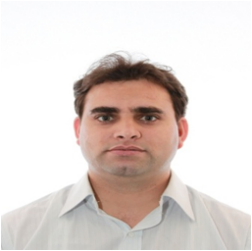
Prof. Khursheed Aurangzeb
King Saud University (KSU), Saudi Arabia
Khursheed Aurangzeb (Senior Member IEEE) is an Associate professor in the Department of Computer Engineering, College of Computer and Information Sciences at King Saud University (KSU), Riyadh, Saudi Arabia. He received his PhD degree in Electronics Design from Mid Sweden University Sweden in June 2013 and, an MS degree in Electrical Engineering (System on Chip Design) from Linkoping University, Sweden in 2009. He received his B.S. degree in Computer Engineering from COMSATS Institute of Information Technology in Abbottabad, Pakistan in 2006. Dr. Khursheed has authored and co-authored more than 120 publications including IEEE / ACM / Springer / Hindawi / MDPI journals, and flagship conference papers. He has obtained more than 15 years of excellent experience as an instructor and researcher in data analytics, machine/deep learning, signal processing, electronics circuits/systems and embedded systems. He has been involved in many research projects as a principal investigator and a co-principal investigator. His research interest is in the diverse fields of embedded systems, computer architecture, signal processing, wireless sensor networks, communication, and camera-based sensor networks with an emphasis on big data and machine/deep learning with applications in smart grids, precision agriculture, and healthcare.
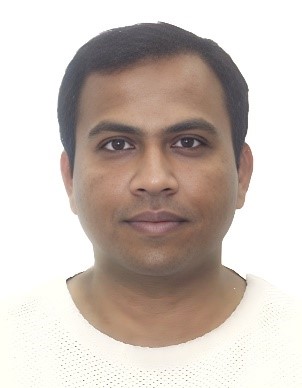
Prof. Javed Ali Khan
University of Hertfordshire, UK
Javed Ali Khan is working as a senior lecturer at the Foundation of Software Engineering (FSE) group, Department of Computer Science, University of Hertfordshire, UK. Previously, he worked as an Assistant Professor cum chairperson in the Department of Software Engineering, University of Science and Technology Bannu, Pakistan. He completed his PhD in Software Engineering from Tsinghua University (QS ranked 12th), Beijing, PR. China. He regularly publishes papers in reputable software engineering journals and conferences.
His areas of interest are Software Engineering, Requirements Engineering, CrowdRE, Argumentation and argument mining, mining software repositories, human values in Software, Quantum Software Engineering, Feedback Analysis, Empirical Software Engineering, Sentiment and opinion mining, Requirements Prioritization, Mining fake reviews, sarcasm detection, and Health Analytics.

Prof. Hameedur Rahman
Air University, Pakistan
Dr. Hameedur Rahman, Associate Professor and Chair at Air University, Pakistan, is a leader at the forefront of AI and emerging technologies. With over 15 years of experience bridging the gap between theory and practice in areas like computer vision, Medical, AR/VR, and game development, Dr. Hameed brings a holistic perspective to the challenges and opportunities of AI integration. He has done his BS & MS in Software Engineering with Multimedia from Limkokwing University of Creative Technology Malaysia and Ph.D in Computer Vision from Universiti Kebangsaan Malaysia(UKM) with Ph.d thesis in Fusion Technique and Augmented Reality. A prolific researcher (60+ publications, 6 patents) focused on the intersection of AI and emerging fields, Dr. Hameed is passionate about fostering the next generation through education and collaboration, making him a valuable asset in the field of digital technologies. His research interests include digital twins, AR/VR, games, cybersecurity and haptic sensors.
Workshop 6: Data and System Security for AIoT
Workshop 6: Data and System Security for AIoT
Artificial Intelligence of Things (AIoT) is a new paradigm that leverages artificial intelligence (AI) techniques to enhance the capabilities and functionalities of Internet of Things (IoT) systems. However, AIoT also faces various challenges and risks in terms of data and system security, such as data integrity, confidentiality, and availability, system robustness, reliability, and resilience, and security threats from malicious attackers and adversaries. Therefore, it is imperative to develop and deploy effective data and system security mechanisms and solutions for AIoT systems. This workshop invites researchers and practitioners to share their latest research findings, novel ideas, and practical experiences on data and system security issues and solutions for AIoT systems. The workshop will cover topics such as data encryption, compression, protection, privacy preservation, quality assessment, provenance, traceability, system design, architecture, testing, verification, fault tolerance, resilience, attack detection, prevention, analysis, response, security standards and protocols.
This workshop covers all aspects of data and system security for AIoT systems, including but not limited to:
- Data encryption, compression, and protection for AIoT systems;
- Data privacy preservation and anonymization for AIoT systems;
- Data quality assessment and assurance for AIoT systems;
- Data provenance and traceability for AIoT systems;
- System design and architecture for secure AIoT systems;
- System testing and verification for secure AIoT systems;
- System fault tolerance and resilience for secure AIoT systems;
- System attack detection and prevention for secure AIoT systems;
- System attack analysis and response for secure AIoT systems;
- System security standards and protocols for secure AIoT systems.
Chair:
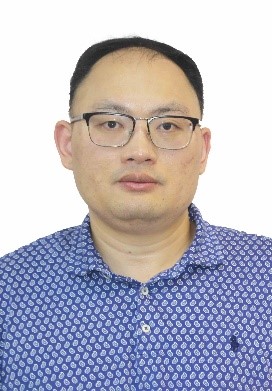
Prof. Yutao Tang
Guilin University of Electronic Technology, China
Dr. Yutao Tang is a Professor at Guilin University of Electronic Technology. He received his Ph.D. degree from the College of William and Mary in 2018, advised by Prof. Qun Li. Prior to joining Guilin University of Electronic Technology, Dr. Tang worked as a Senior Engineer at Walmart Labs in the United States from 2018 to 2022. He has published several papers as the first author or co-first author in top-tier conferences and journals such as ICSE, CCS, and TC and has applied for three international patents. In recent years, he has led one project funded by the National Natural Science Foundation of China and participated as a core member in several national and provincial key projects. Dr. Tang's research interests include edge computing, autonomous driving, cybersecurity, 3D reconstruction, computer vision, and large language models.
Workshop 7: Advanced Communication and Networking Technologies for Internet of Things and Internet of Vehicles
Workshop 7: Advanced Communication and Networking Technologies for Internet of Things and Internet of Vehicles
The Internet of Things (IoT) and the Internet of Vehicles (IoV) have extensive potential applications in various fields, such as smart healthcare, smart industry, intelligent agriculture, and transportation. Despite these promising prospects, designing productive IoT and IoV systems involves several major challenges. For example, communication networks must be fault-resistant in order to achieve reliable information distribution; data collection, processing and transmission may incur excessive delay and data loss, which would reduce the reliability of IoT and IoV; ensuring the security and privacy of users in heterogeneous IoT and IoV is not straightforward. The newest developments including edge computing, 5G communication technologies, reinforcement learning, federated learning, and other technologies provide effective solutions to these problems.
The goal of this Special Issue is to focus on security, reliability, resource optimization, sensor topology optimization, and sensor information collection and analysis in IoT and IoV systems. We particularly welcome the achievements yielded by the investigation of novel communication and networking technologies in IoT and IoV, such as ultra-reliable and low-latency communication, intelligent communication network collaboration, communication performance analysis and optimization. This Research Topic invites novel contributions from academia and industrial sectors to research, develop and investigate the opportunities, challenges, and solutions related to the implementation of innovative architectures, methods, approaches, and technologies for IoT and IoV.
Keywords:
- Internet of Things
- Internet of Vehicles
- Communications
- Networking
Chair:
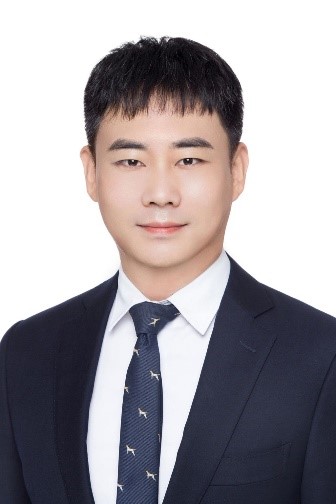
Prof. Qiong Wu
Jiangnan University, China
Qiong Wu, Ph.D., graduated from the State Key Laboratory of Mobile Communication, Southeast University in 2016, majoring in information and communication engineering, and received the Ph.D. degree in engineering.He is a postdoctoral fellow at the Department of Electronic Engineering, Tsinghua University from 2018-2020. Currently, he is an associate professor and master's supervisor in the School of Internet of Things Engineering, Jiangnan University. senior member of IEEE.
Workshop 8: Deep Learning and Quantum Deep Learning in the Internet of Things Environment
Workshop 8: Deep Learning and Quantum Deep Learning in the Internet of Things Environment
With the rapid advancement of Internet of Things (IoT) technology, we have entered a world of massive connectivity where sensors, devices, and the Internet interact to generate and transmit data at an unprecedented scale and speed. In this complex IoT environment, deep learning and quantum deep learning have emerged as powerful tools for addressing data processing and analysis challenges. Deep learning has already achieved significant success in fields such as image recognition, natural language processing, and recommendation systems, while quantum deep learning represents the cutting edge, offering the potential to accelerate solutions to certain problems.
Topics:
1. Applications of deep learning in the Internet of Things
2. Fundamentals and applications of quantum deep learning
3. The applications of deep learning and quantum deep learning in IoT security
4. Applications of deep learning and quantum deep learning in IoT data analysis and prediction
5. Potential impact of quantum computing on deep learning
6. Basic theories, applications, and analysis related to deep learning and quantum deep learning
Keywords:
- Quantum machine learning
- Deep learning
- Quantum neural networks
Chairs:
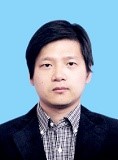
Prof. Zhiguo Qu
Nanjing University of Information Science and Technology, China
Zhiguo Qu received the Ph.D. degree in information security from the Beijing University of Posts and Telecommunications, China, in 2011. From 2012 to 2014, he worked as a Post-Doctoral Researcher Fellow at Dublin City University, Ireland. In July 2011, he joined the Nanjing University of Information and Technology, China, where he is currently an Professor in the School of Computer and Software. His research interests include quantum machine learning (quantum neural networks and convolutional neural networks, quantum federated learning, quantum generative adversarial networks, quantum graph neural networks, etc.), deep learning (federated learning, convolutional neural networks, generative adversarial networks, graph neural networks, etc.), deep learning based multimodal information fusion, blockchain and quantum blockchain, quantum steganography, quantum secure communication.
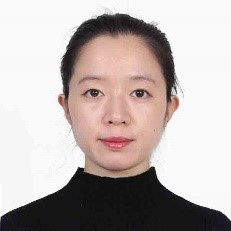
Prof. Le Sun
Nanjing University of Information Science and Technology, China
Dr. Le Sun is a Professor in the School of Computer, Nanjing University of Information Science and Technology, China. She received her PhD degree from Victoria University, Australia in 2016, and received the Chancellor-citation Best PhD Award. She was a visiting scholar of Michigan State University in 2018. She has published over 50 papers on high quality conferences and journals. Her research interests include Artificial Intelligence and software engineering.
Workshop 9: Recent Advances in Deep Learning Methods and Techniques for Medical Image Analysis
Workshop 9: Recent Advances in Deep Learning Methods and Techniques for Medical Image Analysis
With the advancement in biomedical imaging, the amount of data generated is increasing in biomedical engineering. For example, data can be generated by multimodality image techniques, e.g., ranging from Computed Tomography (CT), Magnetic Resonance Imaging (MR), Ultrasound, Single Photon Emission Computed Tomography (SPECT), and Positron Emission Tomography (PET), to Magnetic Particle Imaging, EE/MEG, Optical Microscopy and Tomography, Photoacoustic Tomography, Electron Tomography, and Atomic Force Microscopy, etc. This poses a great challenge to develop new advanced imaging methods and computational models for efficient data processing, analysis, and modeling in clinical applications and understanding the underlying biological process.
In recent years, deep learning is a rapidly advancing field in terms of both methodological development and practical applications. It allows computational models of multiple processing layers to learn and represent data with multiple levels of abstraction. It can implicitly capture intricate structures of large-scale data and is ideally suited to some of the hardware architectures currently available.
The focus of this workshop is to carry out the research article, which could be more focused on the latest medical image analysis techniques based on Deep learning. In recent years, researchers have widely used the Deep Learning method and its variants. This Issue intends to bring new DL algorithms with some Innovative Ideas and find out the core problems in medical image analysis.
Recommended topics include (but are not limited to) the following:
1. Application of deep learning in biomedical engineering
2. Transfer learning and multi-task learning
3. Joint semantic segmentation, object detection, and scene recognition on biomedical images
4. Improvising on the computation of a deep network; exploiting parallel computation techniques and GPU programming
5. New models or new structures of the convolutional neural network
6. Visualization and explainable deep neural network
Chairs:
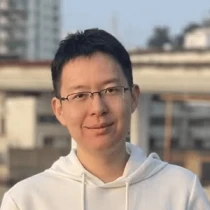
Prof. Chenxi Huang
Xiamen University, China
Chenxi Huang received the Ph.D. degree in the School of Electronic and Information Engineering at Tongji University, China. He is an Assistant Professor the School of Informatics, Xiamen University, China. His research interests encompass a broad spectrum, including deep learning, artificial intelligence, multimedia analysis, medical image processing, and medical information processing.
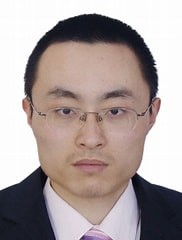
Prof. Yudong Zhang
University of Leicester, UK
Yudong Zhang (Senior Member, IEEE) received the B.E. degree in information sciences and the M.Phil. degree in communication and information engineering from the Nanjing University of Aeronautics and Astronautics, China, in 2004 and 2007, respectively, and the Ph.D. degree in signal and information processing from Southeast University in 2010. He is a Professor at University of Leicester, UK. His research interests include deep learning and medical image analysis.
Workshop 10: Innovations and Applications in Energy-Efficient Computing
Workshop 10: Innovations and Applications in Energy-Efficient Computing
Innovations in the field of energy-efficient computing include the development of energy-optimized algorithms and architectures, such as energy-saving CPUs, GPUs and special accelerators. Techniques such as dynamic voltage and frequency scaling (DVFS) and energy-aware scheduling are used to reduce power consumption in high-performance computing (HPC) environments. Green data centers use advanced cooling systems and renewable energy sources to minimize their carbon footprint. In IoT and embedded systems, energy-efficient designs focus on extending battery life through low-power sensors and microcontrollers. The workshop "Innovations and Applications in Energy-Efficient Computing" is dedicated to discussing current advances and practical implementations of energy-efficient computing technologies. The aim of the workshop is to bring together researchers, industry professionals and academics to share findings, present research results and explore new ways to reduce the energy consumption of computer systems.
Key Themes:
1. Energy-efficient algorithms and architectures.
2. Green data centers.
3. Energy-efficient embedded systems
4. Energy-conscious software development
5. Adaptive and scalable energy management
6. Energy efficiency in high-performance computing (HPC)
7. Emerging technologies and applications such as healthcare, automotive and smart cities.Chairs:

Dr. Nitin Goyal
Central University of Haryana, India
Dr. Nitin Goyal works at the Central University of Haryana, Mahenderagarh. He holds a Ph.D. in Computer Engineering from NIT Kurukshetra, India. He obtained his B.Tech in 2007 and M.Tech in 2009 in Computer Science and Engineering from Kurukshetra University, India. He has around 15 years of teaching experience and is also academically active. He has published around 150 research papers in various international/national journals, books and conferences, out of which 70 are in SCI, 5 in SCOPUS, 12 book chapters and 30 conference papers. He has filed more than 25 patents, of which 15 have been published and 10 have been granted. He has also participated in 13 workshops and 3 FDPs. He is the editor of 2 books from different publishers like IGI Global, CRC Press. He has supervised 10 M.Tech candidates, 2 PhD candidates and 4 PhD candidates are in progress. He has also delivered 12 technical talks on NS2, paper writing, patent filing, innovation and entrepreneurship. He is also a GATE, HTET and UGC-NET qualifier. His research interests include MANET, FANET, UWSN and WSN. He is a senior member of IEEE. Dr. Nitin has been awarded 3 times for his research work in different years at different forums. He is on the editorial board of various journals and conferences. He is guest editor of “International Journal of Distributed Sensor Networks”, SCI Journal, SAGE, "Energies", SCI Journal, MDPI, "Frontiers in Blockchain", Frontier Scientific Publishing, ESCI, "Journal of Autonomous Intelligence", Frontier Scientific Publishing, SCOPUS Journal etc.
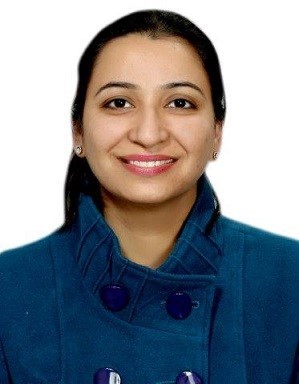
Dr. Nonita Sharma
Indira Gandhi Delhi Technical University for Women, New Delhi, India
Dr. Nonita Sharma works as an Associate Professor at Indira Gandhi Delhi Technical University for Women, New Delhi. She has more than 15 years of teaching experience. Her major areas of interest include data mining, bioinformatics, time series forecasting and wireless sensor networks. She has published several papers in international/national journals/conferences and book chapters. She received the Best Paper Award for her research work at the Mid-Term Symposium organised by CSIR, Chandigarh. She was honoured with the Best Teacher Award for her contributions, achievements and excellence in the field of Computer Science & Engineering at NIT Jalandhar. She has been honoured twice with the Best Content Guru Award by Infosys. She has authored a book titled “Analysis of Algorithms”. She has edited various books published by reputed publishers like WILEY, Taylor & Francis, CRC Press etc. She is a member of the IEEE and has been included in the top 5 of the IEEE Women Achiever Award. She is a reviewer for many journals and has contributed to academic research in the form of projects, publications and patents.
Workshop 11: Integrating Intelligent Technologies for Seamless Information Systems
Workshop 11: Integrating Intelligent Technologies for Seamless Information Systems
In the digital age, the need for effective information integration across various platforms and systems has become increasingly critical. This workshop will explore the role of intelligent technologies in enhancing information integration, focusing on the application of advanced Artificial Intelligence (AI) techniques to create more cohesive and intelligent information systems. Participants will delve into the latest innovations and methodologies that facilitate the seamless merging of data from diverse sources, ensuring accuracy, timeliness, and usability in decision-making processes.
Objectives:
- To understand the challenges and opportunities in intelligent information integration.
- To explore various AI techniques that enhance data interoperability and quality.
- To examine case studies where AI has successfully improved integration across different platforms.
- To discuss future trends and potential research directions in intelligent information systems.
Key Topics:
- AI-driven approaches to data integration: Techniques and tools.
- The impact of semantic technology on information integration.
- Enhancing data integrity and decision-making through AI.
- Practical challenges and solutions in implementing AI for information integration.
Target Audience:
This workshop is designed for researchers, practitioners, and technologists interested in AI, data integration, and information systems. It will benefit those looking to enhance their understanding of how AI can be leveraged to solve complex integration challenges and improve the efficacy of information systems.
Keywords:
- Artificial Intelligence
- Information Integration
- Semantic Technology
- Data Integrity
Chair:
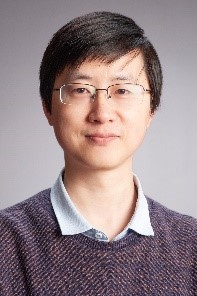
Prof. Xingsi Xue
Fujian University of Technology, China
Xingsi Xue received the B. S. degree in Software Engineering from Fuzhou University, China in 2004, the M. S. degree in Computer Application Technology from Renmin University of China, China in 2009, and the Ph.D. degree in Computer Application Technology from Xidian University, China in 2014. He was a post-doc fellow at School of Engineering and Computer Science, Victoria University of Wellington, New Zealand. He is an associate professor at School of Computer Science and Mathmatics, Fujian University of Technology, and the director of Intelligent Information Processing Research Center, Fujian University of Technique. He is the senior member of China Computer Federation (CCF), and member of IEEE and ACM. His research interests include intelligent computation, data mining and large-scale ontology matching technology.
Workshop 12: AI-Driven Medicine and Healthcare
Workshop 12: AI-Driven Medicine and Healthcare
As AI technologies rapidly evolve, their integration into healthcare settings heralds a transformative era with the potential to significantly improve patient outcomes, streamline operations, and amplify the capabilities of healthcare professionals. This workshop is dedicated to exploring the cutting-edge AI technologies that are reshaping healthcare by enhancing patient care, optimizing operations, and empowering healthcare professionals.
We invite leading researchers, practitioners, and policymakers to join us in examining the theoretical advancements, practical applications, and promising future of AI in the healthcare sector. The workshop will cover the following key themes (but is not limited to them):
• Future of AI in Medicine: Participants will explore state-of-the-art research and trends shaping healthcare's future. Discussions will focus on AI's role in diagnosing diseases earlier, optimizing treatment plans, predicting patient outcomes, and its implications for healthcare delivery.
• Trustworthy AI for Healthcare: This segment will delve into the ethical considerations, importance of data privacy, and strategies for ensuring transparency and accountability. It is crucial for building reliable, ethical AI systems that align with public health goals and maintain patient trust.
• Explainable AI in Medicine and Healthcare: Explainability is vital for clinical acceptance. This theme will cover the importance of developing AI systems whose actions are interpretable by human experts, enhancing transparency and fostering trust among healthcare providers.
• Novel AI Methods and Practices for Healthcare: This new theme will highlight cutting-edge AI methodologies and their current applications within healthcare. It will showcase innovative practices and how they are being implemented to address complex medical challenges, with a focus on emerging technologies such as deep learning, natural language processing, and robotics.
Chair:
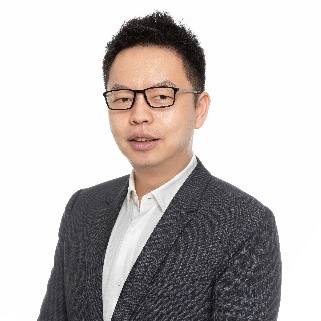
Prof. Haoxi Zhang
Chengdu University of Information Technology, China
Prof. Haoxi Zhang is an Associate Professor at Chengdu University of Information Technology, China. He holds a Ph.D. in Knowledge Engineering from the University of Newcastle, Australia (2013), and a Master’s in Software Engineering from the University of Electronic Science and Technology of China. Prof. Zhang's research intricately melds artificial intelligence with healthcare, focusing on the development of advanced computational models and machine learning algorithms for biomedical data analysis, particularly medical imaging and AIoT for healthcare, to enhance medical decision-making. His work emphasizes developing multimodal learning algorithms to integrate multi-scale biomedical data for comprehensive disease management, constructing real-world learning systems for creating robust, trustworthy representations from imperfect medical data, and innovating causality-driven learning algorithms to boost interpretability and safety in healthcare applications. Prof. Zhang has published over 40 refereed papers in leading journals and conferences.
Workshop 13: Trustworthy Artificial Intelligence: Ensuring Ethical, Transparent, and Reliable AI Systems
Workshop 13: Trustworthy Artificial Intelligence: Ensuring Ethical, Transparent, and Reliable AI Systems
The Workshop on Trustworthy Artificial Intelligence aims to bring together researchers, practitioners, and policymakers to explore and address the challenges and opportunities in developing AI systems that are ethical, transparent, and reliable. This workshop will cover a broad range of topics critical to building trust in AI technologies, from technical methodologies to ethical considerations and regulatory frameworks.
Keywords:
• Bias and Fairness in AI,
• Bias and Fairness in AI,
• Explainable AI,
• AI Robustness and Security,
• Privacy-Preserving AI.
Chairs:
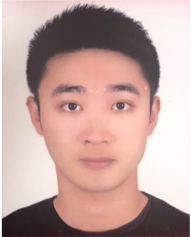
Prof. Xia Du
Xiamen University of Technology, China
Xia Du received his Ph.D. degree in computer science from the University of Macau, Macau, China, in 2021. He is an Assistant Professor at the Faculty of Computer Information and Engineering, Xiamen University of Technology, Xiamen, China. His research interests include pattern recognition, natural language processing, privacy and security.
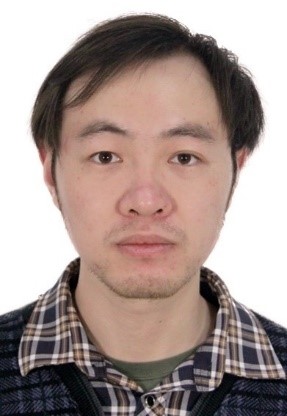
Prof. Qi Zhang
City University of Macau, Macau, China
Qi Zhang received his Ph.D. degree in computer science from the University of Macau, Macau, China, in 2023. He is an Assistant Professor at the Faculty of Data Science, City University of Macau, Macau, China. His research interests include machine learning, smart healthcare, pattern recognition, and image processing.

Prof. Jizhe Zhou
Sichuan University, China
Jizhe Zhou received a Ph.D. degree in computer and information science from the University of Macau, Macau, China, in 2021. He is an Associated Researcher with the College of Computer Science, Sichuan University, Chengdu, China. His research interests include video semantics, privacy and security, and multimedia analysis.
Workshop 14: AI Safeguarding IoT: Exploring Deep Learning and Data Security
Workshop 14: AI Safeguarding IoT: Exploring Deep Learning and Data Security
With the rapid development of Internet of Things (IoT) technology, Artificial Intelligence (AI) and data security have become critical factors ensuring its sustainable growth. IoT connects billions of devices, generating massive data that supports intelligent decision-making but also introduces unprecedented security challenges. The application of AI in IoT security is gradually becoming a research hotspot. Particularly, deep learning excels in handling large-scale, heterogeneous data, serving as an effective means to enhance IoT system security. Through deep learning, real-time monitoring and anomaly detection of device behavior can be achieved, enabling timely responses to potential security threats.
However, the complexity of IoT and the heterogeneity of devices pose numerous challenges. Traditional security solutions often struggle to meet the demands of the IoT environment. Balancing security while maintaining device performance and efficiency is a pressing issue that needs immediate attention. Moreover, as IoT becomes more prevalent, concerns over data privacy intensify. Effectively protecting user privacy during data collection, transmission, and storage processes while ensuring data availability and integrity is a paramount concern shared by both industry and academia.
This workshop aims to focus on the latest advancements and challenges of deep learning and data security in the IoT domain. Key research directions include, but are not limited to: deep learning-based IoT data analysis and prediction; design and optimization of deep learning models for IoT security; data encryption, privacy protection and identity authentication, access control; implementation and application of deep learning algorithms in IoT systems.
• AI-based IoT data analysis
• AI-based IoT data prediction
• Design and optimization of deep learning models for IoT
• Data encryption, compression for IoT
• Data privacy preservation for IoT
• Data security standards and protocols for IoT
Chair:
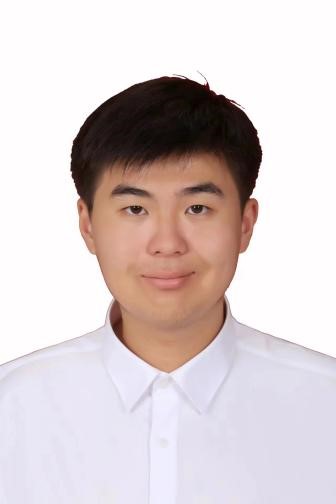
Prof. Xin Liu
Lanzhou University, China
Liu Xin is an associate professor at the School of Information Science and Engineering, Lanzhou University. His research focuses on foundational technologies in cybersecurity, including code security, threat detection and evasion, AI adversarial techniques, security management and defense in depth systems, and open source intelligence (OSINT). He has served as the principal investigator for numerous national and provincial key R&D projects, as well as central university research projects and State Grid Corporation technology initiatives. Over the past five years, he has published over twenty research papers in high-impact journals and conferences such as IJIM, MM, and IOTJ, accumulating over 300 citations. Notably, one of his theoretical research achievements was recognized as a highly cited paper in ESI, and two studies on novel attack paradigms were selected for the prestigious industrial conference known as “Black Hat,” often referred to as the “Oscars of hacking.” He has established long-term research collaborations with leading enterprises such as Huawei, Baidu, State Grid, and China Mobile, prominent universities including Tsinghua University and Zhejiang University, and open-source communities such as OpenAtom and OSADL.
Workshop 15: Theory and Implementation of Artificial Intelligence in Biomedical Image Processing
Workshop 15: Theory and Implementation of Artificial Intelligence in Biomedical Image Processing
“Theory and Implementation of Artificial Intelligence in Biomedical Image Processing” aims to explore the transformative role of AI in the analysis and interpretation of biomedical images. This issue will cover a broad range of topics including the development of novel algorithms, deep learning techniques, and their applications in diagnostics, treatment planning, and disease monitoring. Emphasis will be placed on the theoretical foundations of AI as well as practical implementations and case studies demonstrating its impact in clinical settings. Contributions will also address challenges such as data privacy, model interpretability, and integration with existing healthcare systems, highlighting the potential of AI to revolutionize biomedical image processing and improve patient outcomes.
Keywords:
• Artificial Intelligence (AI)
• Biomedical Image Processing
• Deep Learning
• Diagnostic Imaging
• Machine Learning
• Computer Vision
• Disease Monitoring
• Treatment Planning
• Algorithm Development
• Clinical Applications
• Data Privacy
• Model Interpretability
• Healthcare Integration
• Medical Imaging
• Image Analysis
• Pattern Recognition
Chair:

Dr. Saadaldeen Rashid Ahmed
Bayan University, Iraq
Dr. Saadaldeen Rashid Ahmed is Assistant Professor in the Head of Department (Computer Science ), Bayan University, Iraq. He obtained a bachelor’s and MSc in information technology from Altinbas University (Turkey) and a PhD in Computer Engineering from Karabuk University (Turkey). Research interests include Artificial Intelligence, Machine Learning, Deep Learning, Computer vision, Computer Networks, Wireless Sensor Networks, Wireless Body Area Network.
Workshop 16: Advanced Quantum Computing and Quantum AI Techniques
Workshop 16: Advanced Quantum Computing and Quantum AI Techniques
Quantum computing and artificial intelligence are currently hot research areas. Quantum Artificial Intelligence (Quantum AI) represents the transformative fusion of quantum computing and artificial intelligence, promising to revolutionize computational paradigms across various disciplines. Quantum AI encompasses the development of quantum algorithms for machine learning, optimization, and data processing. Quantum algorithms are becoming powerful tools for solving diverse problems, and research and application of quantum information using quantum states are proving to be effective methods for achieving secure long-distance communication. Additionally, quantum cloud computing applications based on quantum computing are continuously advancing. In other fields, Quantum AI is also rapidly developing.
In this context, quantum cryptography, quantum secure communication, quantum information processing, and the integration of classical information security technologies with quantum information research have become significant challenges in the development of information security technologies.
This workshop focuses on quantum information, quantum computing, and artificial intelligence technologies, providing a platform for researchers and experts to discuss and explore the applications of quantum technologies in various fields. Our goal is to accelerate the development of Quantum AI technologies through sharing and discussion, ultimately advancing the next generation of intelligent systems and computational capabilities.
Topics:
The workshop solicits novel papers on a broad range of topics, potential topics include but are not limited to:
• Quantum computing and quantum simulation
• Quantum algorithm
• Quantum artificial intelligence
• Quantum swarm intelligence algorithm
• Quantum information processing
• Quantum information transmission
• Quantum secure communication
• Quantum cryptography
• Semiconductor quantum computing
• Quantum network coding
Chair:
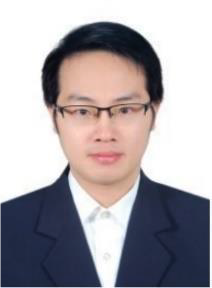
Dr. Gang Xu
North China University of Technology, China
Gang Xu received a Ph.D. degree from Beijing University of Posts and Telecommunications in 2018. He is currently an Associate Professor in the School of Information Science and Technology at North China University of Technology. His current research interests are quantum cryptography and quantum secure communication. Dr. Xu has published several academic papers in refereed international journals and conferences, including IEEE INTERNET OF THINGS JOURNAL, IEEE SYSTEM JOURNAL, SECURITY AND COMMUNICATION NETWORKS, QUANTUM INFORMATION PROCESSING, SCIENTIFIC REPORTS, SOFT COMPUTING, etc. He won the Best Paper Award of ICAIS 2021.
Workshop 17: AI in Cybersecurity Risk Assessment
Workshop 17: AI in Cybersecurity Risk Assessment
The primary purpose of this workshop is to focus on using AI in cybersecurity risk assessment through inspiring scientists to share their groundbreaking research and practical insights. It clarifies many of the challenges in the realm of cybersecurity. It systematically navigates the web of security challenges, addressing issues that range from cybersecurity risk assessment to the deployment of the latest security countermeasures. As it confronts the threats lurking in the digital shadows, this workshop stands as a catalyst for change, encouraging academic scholars, researchers, and cybersecurity professionals to fortify the foundations of our digital worldcollectively. Covering a wide array of topics such as machine learning in security, artificial intelligence security, big data security and privacy, cloud security, and quantum security, it beckons academia, developers, policymakers, and cybersecurity analysts to contribute to the ongoing dialogue. By fostering collaboration and knowledge sharing, risk assessment and countermeasures for cybersecurity empower readers to not only understand the nuances of modern cyber threats but also actively participate in shaping the future of cybersecurity.
Keywords:
• AI
• Cybersecurity risk assessment
• Machine learning in security
• Artificial intelligence security
• Security and privacy
Chairs:
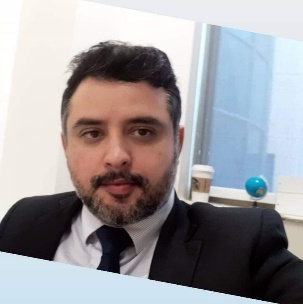
Dr. Mohammed Amin Almaiah
The University of Jordan, Jordan
Mohammed Amin Almaiahis Associate Professorin Department of Computer Scienceat The University of Jordan, Jordan. He (Member, IEEE) received the M.Sc. degree in computer information system from Middle East University (MEU), Jordan, in 2011, and the Ph.D. degree in computer science from Universiti Malaysia Terengganu, Malaysia. Mohammed Amin Almaiah is among the top 2% scientists in the world from 2020 up to now.Almaiah is working as Editor in Chief for the International Journal of Cybersecurity and RiskAssessment. He got the Distinguished Faculty Member Award – Best Researcher -2022 at King FaisalUniversity.Almaiah has high h-index (>42) and high citations (> 6400) in Google scholar.He is currently an Assistant Professor with the Department of Computer Networks, King Faisal University, Saudi Arabia. He has published over 30 research articles in highly reputed journals, such as Engineering Science and Technology, an international journal, Education and Information Technologies, and the Journal of Educational Computing Research. Most of his publications were indexed under the ISI Web of Science and Scopus. His current research interests include mobile learning, software quality, network security, and technology acceptance. He is a Certified Recognized Reviewer of the IEEE, Elsevier, and Springer.

Dr. Said A. Salloum
University of Salford, UK
I am a highly qualified individual with a strong educational background and extensive professional experience in the fieldof Computer Science. I earned my PhD in Computer Science from the University of Salford, UK. Prior to that, I completedmy Master's degree in Informatics (Knowledge and Data Management) at The British University in Dubai and obtained myBachelor's degree in Computer Science from Yarmouk University. Currently, I serve as a senior enterprise architect at theUniversity of Sharjah - Computer Center, where I play a pivotal role in shaping the university's technological landscape. Inthis capacity, I am responsible for overseeing the strategic design and implementation of cutting-edge technologysolutions that facilitate the university's teaching, research, and administrative functions. My role involves closecollaboration with fellow IT professionals to ensure the security and efficiency of the university's systems. Additionally, Ilead various projects aimed at introducing new technologies and enhancing existing ones to continually advance theinstitution's technological capabilities. Beyond my role at the University of Sharjah, I have also made significantcontributions to the field of research. I recently had the privilege of working at the University of Sharjah's ResearchInstitute of Sciences and Engineering (RISE), where I engaged in research across a diverse range of topics. I am proud to berecognized as a top-tier scientist on a global scale. Stanford University's report, published in October 2021, 2022, and2023, identifies me as one of the top 2% scientists worldwide. Additionally, in the AD Scientific Index for 2022, I washonored to be selected among the top 100 Scientists in the United Arab Emirates, highlighting my significantcontributions to the scientific community. My research publications have garnered recognition as well, with a majority ofthem indexed in ISI Web of Science, underscoring their quality and impact. Furthermore, I have established myself as anexpert in Oracle technologies, holding multiple Oracle certifications since 2013.
Workshop 18: Artificial Intelligence for Edge Computing
Workshop 18: Artificial Intelligence for Edge Computing
Edge Computing is a new computing paradigm where server resources, ranging from a credit-card size computer to a small data center, are placed closer to data and information generation sources. Application and systems developers use these resources to enable a new class of latency and bandwidth sensitive applications that are not realizable with current cloud computing architectures. Edge computing represents a counterpoint to the consolidation of computing into massive data centers, which has dominated the discourse in cloud computing for well over a decade. Popular terms such as micro-data centers, intelligent edges, cloudlets, and fog have been used interchangeably to describe edge computing.
Artificial intelligence techniques can be applied in the edge computing to develop some various smart systems it includes smart city and smart home, smart grid, smart industry, smart vehicle, smart health, and smart environmental monitoring. New AI and ML real time or execution time algorithms are needed, as well as different strategies to embed these algorithms in edges. New clustering and classification techniques, reinforcement learning methods, or data quality approaches are required, as well as distributed AI algorithms.
The aim of this workshop is to offer a forum for exchanging and proposing new ideas and techniques related with the design and usage of artificial intelligence techniques in edge computing. More specifically, we invite recent advanced research on artificial intelligence techniques privacy enhancing technologies and secure cryptographic techniques to address performance and security challenges in the field of edge computing.
Scope and Topics:
Potential topics include but are not limited to:
• AI for smart data storage in edge computing
• Intelligent real-time big data analytics, processing, and storage in edge computing
• Intelligence image processing algorithms for Edge computing
• Intelligent algorithms for edge computing
• Machine learning for edge computing
• Automated reasoning and inference for edge computing
• Clustering and classification algorithms for Edge computing
• Deeping learning and reinforcement learning for edge computing
• Expert systems and Hybrid systems for Edge computing
• Multi-agent systems for edge computing
• Distributed systems design for AI in edge computing
• Intelligent resource scheduling and management in edge computing
• Novel applications and experiences with edge computing
• Intelligent real time algorithms for edge computing
• Intelligent security proposals for edge computing
• Blockchain in edge computing
• Applications of AI for security and privacy in edge computing
Chairs:
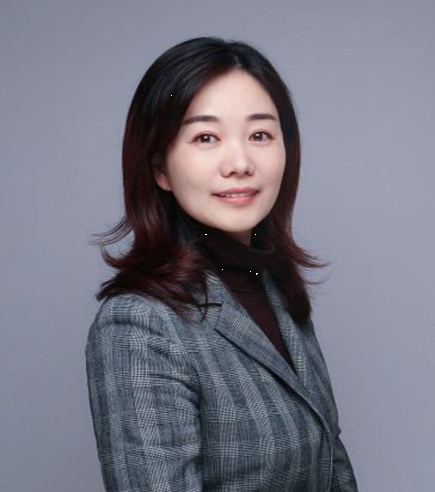
Prof. Fang Liu
Hunan University, China
Dr. Fang Liu is a full professor of the top-notch School of Design at Hunan University. She is also the Director of Data Intelligence and Service Design Lab. She received the B.S. and PhD. degrees in computer science from National University of Defense Technology, Changsha, China in 1999 and 2005, respectively. Prior to join Hunan University, she was an associated professor in the School of Computer at National University of Defense Technology, and an outstanding young talent of "Hundred Talents Program" of Sun Yat-sen University. She was also a visiting professor at the University of Florida and the University of Nebraska-Lincoln in 2012 and 2011, respectively. Her Research Interests include service computing, big data management and storage, Intelligent Interaction Design, Edge Computing. She has led and participated in a large number of important scientific research projects that have been well funded by various federal agencies. She has published more than 100 papers in PIEEE, TPDS, TC, TIST, JCST, Ubicomp, VEE, MSST, Middleware, Cluster, ICPP and other international journals and conferences. She has served as Co-Chair and Program Chairs in various conferences. She has worked as a reviewer of more than 10 international journals and as a member of program committees of several International and Chinese conferences. She is currently serving as an associate editor of the IEEE Transactions on Services Computing.
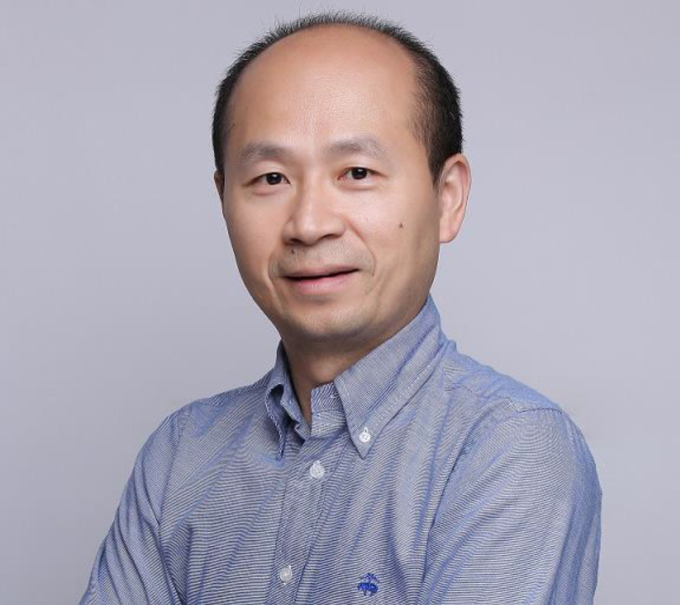
Prof. Zhiping Cai
National University of Defense Technology, China
Dr. Zhiping Cai is a full Professor in Networking Engineering Department, College of Computer, National University of Defense Technology (NUDT) at Changsha, China. Zhiping Cai received his bachelor's, master's and Ph. D degree in computer science and technology with honor from NUDT in July 1996, April 2002 and December 2005, respectively. His doctoral dissertation has been rewarded with the Outstanding Dissertation Award of the Chinese PLA. Zhiping Cai’s current research interests include Network Security and artificial intelligence. He serves as a referee of paper review for the ToN, TPDS, ComNet and serves on many conference program committees. He is a distinguish senior member of China Computer Federation. Zhiping Cai received the Hunan Natural Science Award (first class) in 2017. He has published over 200 academic papers and awarded six Best Paper Awards.
Workshop 19: Clustering Algorithm and Privacy Protection
Workshop 19: Clustering Algorithm and Privacy Protection
Clustering algorithm is a widely used unsupervised learning technique. With the development of information technology, clustering algorithms are facing two important issues: the scalability problem caused by big data and the data privacy leakage problem. Federated clustering, as an emerging distributed clustering mechanism, can simultaneously solve the above two issues. The traditional federated clustering algorithm is also affected by data heterogeneity, privacy security, and so on, it is a hot research topic.
Keywords:
• Clustering
• Federated clustering
• Secure clustering
Chair:
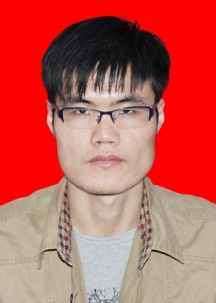
Dr. Yizhang Wang
Yangzhou University, China
He received Ph.D. degree from Jilin University in 2020. He joinedYangzhou University in 2020, as alecturer. He has published 10+ papers in international journals such as Pattern Recognition, Information Sciences, andKnowledge-Based Systems. His research interests includedensity clustering and federated clustering.
Workshop 20: Neural Network Algorithm and Image Processing
Workshop 20: Neural Network Algorithm and Image Processing
Convolutional neural networks, computer vision and pattern recognition are fundamental problems in artificial intelligence, which also belongs to the application scopes of mathematical theory and tools. Deep learning methods, such as convolutional neural networks, have demonstrated remarkable success in tasks such as object recognition, semantic segmentation and image synthesis. Pattern recognition is the process of recognizing patterns using a machine learning algorithm. In recent years, there has been a rapid expansion of computer vision and pattern recognition, and a wide range of applications based on computer vision and pattern recognition can be seen everywhere, e.g., object detection, recognition, segmentation, classification.We aim to assemble recent advances in computer vision, pattern recognition, and related extended applications.
Keywords:
• Neural network
• Deep learning
• Theory in computer vision and pattern recognition
• Image segmentation
• Object detection
Chair:
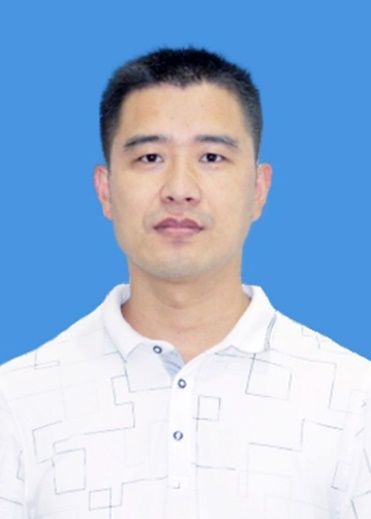
Prof. Le Zou
Hefei University, China
He received PhD degree from University of Science and Technology of China in 2021. He is currently working in Hefei University as a professor. He has published 60+ papers in international journalsor conferencesuch as Pattern Recognition, Neurocomputing, and Applied Soft Computing, Pattern Recognition and Computer Vision, International Conference on Intelligent Computing.His research interests include pattern recognition, image processing, and image segmentation.
Workshop 21: Artificial Intelligence in Industrial Internet of Things
Workshop 21: Artificial Intelligence in Industrial Internet of Things
This workshop will explore the intersection of Artificial Intelligence (AI) and the Industrial Internet of Things (IIoT), focusing on how AI technologies can enhance industrial processes, improve operational efficiency, and drive innovation in various sectors. The workshop aims to provide a comprehensive understanding of AI's role in IIoT applications and showcase cutting-edge solutions that leverage AI to solve complex industrial challenges.
Potential topics include:
• AI-Driven Predictive Maintenance
• Industrial Automation and Robotics
• Data Analytics and Machine Learning
• Edge Computing in IIoT
• Smart Manufacturing
• Anomaly Detection and Fault Diagnosis
• Cybersecurity for IIoT
• Human-Machine Collaboration
• Digital Twins
• AI Ethics and Governance
• Large Language Models
• Multi-modal Large Models
Chairs:
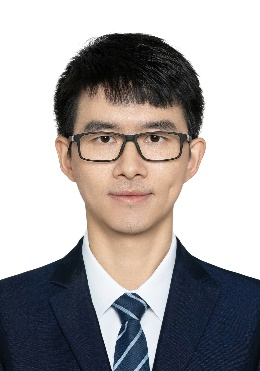
Dr. Weiwei Jiang
Beijing University of Posts and Telecommunications, China
Dr. Weiwei Jiang received the B.Sc. and Ph.D. degrees from the Department of Electronic Engineering, Tsinghua University, Beijing, China, in 2013 and 2018, respectively. He is currently an assistant professor with the School of Information and Communication Engineering, Beijing University of Posts and Telecommunications, and Key Laboratory of Universal Wireless Communications, Ministry of Education. His current research interests include artificial intelligence, machine learning, big data, wireless communication and edge computing.He has published more than 30 academic papers in IEEE trans and other journals, with more than 2100 citations in Google Scholar. He is one of 2023 Stanford's List of World's Top 2% Scientists.
In addition to his research endeavors, Dr. Weiwei Jiang actively engages with scholarly journals as an Editor,including Future Generation Computer Systems, Engineering Reports, Data Science and Management, Journal of Computational and Cognitive Engineering, and Indonesian Journal of Electrical Engineering and Computer Science, INGENIERIA E INVESTIGACION, International Journal of Intelligent Transportation Systems Research, EAI Endorsed Transactions on AI and Robotics, EAI Endorsed Transactions on Industrial Networks and Intelligent Systems. He is also the Guest Editor for many journals, including Information Fusion, Neural Computing and Applications, International Journal of Intelligent Systems, etc.
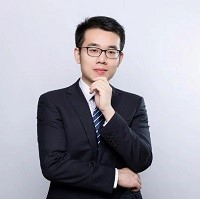
Dr. Weixi Gu
China Academy of Industrial Internet, China
Dr. Weixi Gu received the Ph.D. degree from Tsinghua University (THU), and the Bachelor degree from Shanghai Jiao Tong University. He was the Postdoc at University of California, Berkeley. He is currently a principal researcher at China Academy of Industrial Internet (CAII). His research interests include mobile computing, Industrial Internet of Things, and machine learning.
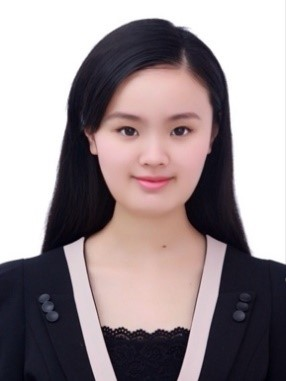
Dr. Miao He
Beijing Institute of Mathematical Sciences and Applications, China
Dr. Miao He is currently an assistant professor in Beijing Institute of Mathematical Sciences and Applications. She received her Ph.D. degree from Tsinghua University in 2020, and bachelor’s degree from China University of Political Science and Law in 2015. She was a visiting scholar in UC, Berkeley and a senior researcher in HEC, Lausanne. Her research interests lie in deep learning, information theory, and related algorithms design.
Workshop 22: Recent Advances in Mobile and Wireless Communications Based on AI
Workshop 22: Recent Advances in Mobile and Wireless Communications Based on AI
The convergence of artificial intelligence (AI) with mobile and wireless communications is rapidly transforming the landscape of modern connectivity. With the advent of 5G, the Internet of Things (IoT), and edge computing, there is an increasing demand for more efficient, reliable, and intelligent communication systems. This workshop will delve into the recent advances in mobile and wireless communications, focusing on the critical role of AI in addressing the complex challenges posed by these emerging technologies.
This workshop aims to gather researchers, practitioners, and industry experts to discuss and share their latest findings, fostering collaboration and innovation at the forefront of AI-driven mobile and wireless communication technologies.
Potential Topics for Submission:
We invite submissions on a wide range of topics that explore the intersection of AI and mobile/wireless communications, including but not limited to:
• AI-based optimization for 5G and beyond networks
• Machine learning models for real-time network traffic prediction and management
• AI-driven resource allocation and spectrum management
• Security and privacy solutions in AI-managed communication networks
• AI in edge computing and its impact on wireless communications
• Deep learning applications in mobile and wireless signal processing
• AI-driven innovations in IoT communication protocols
• Adaptive beamforming and MIMO technologies powered by AI
• Reinforcement learning for autonomous network control and management
• AI-enhanced massive machine-type communications (mMTC)
Chairs:

Dr. Jian Su
Nanjing University of Information Science and Technology, China
Su Jian is currently an Associate Professor at Nanjing University of Information Science and Technology, serving as a supervisor for both Ph.D. and Master's students. He is a member of the Intelligent Information Network Committee of the China Computer Federation, a Youth Member of the IoT Committee of the China Electronics Society, a member of the Computing and Communication Committee of the Jiangsu Computer Society, and a member of the China Industry-University-Research Institute Collaboration Association. He serves as the Editor-in-Chief of the Journal on Internet of Things, an Editorial Board Member of Wireless Communications and Mobile Computing, and a Program Committee member for prestigious international conferences such as IEEE GLOBECOM, IEEE VTC, IEEE/ACM IWQoS, and ICAIS. He has also been a long-term reviewer for journals such as IEEE Transactions on Mobile Computing (TMC), IEEE/ACM Transactions on Networking (ToN), IEEE Wireless Communications, and IEEE Sensor Journal. He has been the Workshop Chair for the International Conference on Artificial Intelligence and Security for several years and was awarded the ICAIS 2021 Outstanding Contribution Award. He has led projects funded by the National Natural Science Foundation of China, the Natural Science Foundation of Jiangsu Province, and the Natural Science Research Program of Jiangsu Higher Education Institutions, as well as several enterprise-sponsored projects. He has published over 30 papers in high-level journals such as IEEE/ACM ToN, IEEE TMC, IEEE TCOM, IEEE TWC, and Journal of Electronics, and has been granted six national invention patents. He has received the Innovation and Promotion Award for Industry-University-Research Collaboration in China and the Entrepreneurship Award for the China Invention Innovation Awards. The IoT-related products he has developed have generated economic benefits exceeding 8 million RMB.
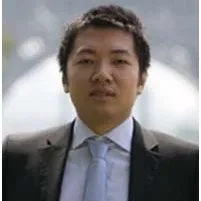
Dr. Zhengguo Sheng
University of Sussex, UK
Sheng Zhengguo received his Bachelor's degree from the Department of Communication Engineering at the University of Electronic Science and Technology of China in 2006. He obtained his Master's degree in Communication and Signal Processing from Imperial College London in 2007 and his Ph.D. in Electrical and Electronic Engineering from Imperial College London in 2011. He is currently a Lecturer in the Department of Engineering and Design at the University of Sussex, UK. His research interests include M2M/IoT (Machine-to-Machine/Internet of Things): wireless sensor networks, IPv6, compressed sensing, energy harvesting, and RFID; vehicular communication: in-vehicle powerline networks, vehicle-to-vehicle (V2V), and vehicle-to-infrastructure (V2I) connectivity; and cloud/edge computing. He has served on the editorial boards of several journals, including IEEE Access and Ad Hoc Networks.

Prof. Siguang Chen
Nanjing University of Posts and Telecommunications, China
Chen Siguang is an Assistant Dean, Ph.D., Professor, and Master's Supervisor at the School of Internet of Things, Nanjing University of Posts and Telecommunications. He is a Member of IEEE and IEEE ComSoc, a recipient of the Jiangsu Province "333 High-Level Talent Training Project," a beneficiary of the Jiangsu Province "Six Talent Peaks" High-Level Talent Support Program, and a Dingxin Scholar under the "1311 Talent Plan" of Nanjing University of Posts and Telecommunications. He is a Youth Member of the IoT Youth Technical Group of the China Electronics Society, a member of the Intelligent Information Network Committee of the China Artificial Intelligence Society, a member of the Jiangsu Provincial Overseas Chinese Federation Youth Committee, a member of the Jiangsu Provincial Overseas Chinese Federation Expert Committee, and a director of the Nanjing Gulou District European and American Alumni Association. He received his Ph.D. in 2011 and completed postdoctoral research at City University of Hong Kong in 2012. From October 2014 to October 2015, he conducted postdoctoral research at the University of British Columbia (UBC), Canada. He was awarded the "Excellent Doctoral Dissertation of Jiangsu Province" in 2012, the Second Prize of the China Electronics Society Science and Technology Award and the First Prize of Teaching Achievement at Nanjing University of Posts and Telecommunications in 2017, and was recognized as an Outstanding Worker at Nanjing University of Posts and Telecommunications. In 2018, he won the Outstanding Paper Award of the 12th Nanjing City Natural Science Excellent Academic Paper, the Second Prize of the "3D Communication Teaching Award" at Nanjing University of Posts and Telecommunications, and the title of "Excellent Advisor" for extracurricular technology activities at the Student Science and Technology Festival of Nanjing University of Posts and Telecommunications. In 2020, he was recognized as an Excellent Young Correspondent for Engineering, the journal of the Chinese Academy of Engineering, and as a core member of the team awarded the First Outstanding Graduate Mentor Team at Nanjing University of Posts and Telecommunications. In 2021, he received the Second Prize of the Invention Innovation Award from the China Invention Association and the First Prize of Teaching Achievement at Nanjing University of Posts and Telecommunications, and was again recognized as an Excellent Young Correspondent for Engineering. His current research interests include fog computing, mobile edge computing, deep learning, big data privacy protection, and IoT resource optimization.
Workshop 23: Applications of Big Data and Large Models
Workshop 23: Applications of Big Data and Large Models
The applications of big data and large models have become a research hotspot across various fields, including business, science, healthcare, engineering, and more. This session serves as a significant forum to showcase innovative ideas, research methods, recent developments, and projects in the area of big data and large models. It also aims to facilitate the exchange of information between researchers and industry experts, fostering discussions on the latest challenges and advancements in the field.
We warmly invite scholars to submit their research findings, project reports, survey work, and industry experiences that highlight significant progress in the applications of big data and large models.
Topics of interest include, but are not limited to:
• Big data technologies, models, and algorithms
• Big data infrastructure and platforms
• Big data search and mining
• Bioinformatics
• Big data security, privacy, and trust
• Big data applications in multimedia, among others
• Big data tools and systems
• Big data mining
• Big data management
• Cloud and grid computing for big data
• Machine learning and artificial intelligence for big data
• Big data analytics and social media
• 5G and networking for big data
• Applications of big data in education, healthcare, and more
Keywords:
• Big Data
• Large Models
• Big Data Algorithms

